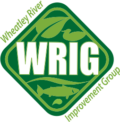Hello Wheatley River watershed members,
Did you know that there are seven species of bats present throughout Atlantic Canada? While three species (Hoary Bat, Eastern Red Bat, and Silver-haired Bat) are migratory, the other four (Little Brown Myotis, Northern Myotis, Tri-colored Bat, and Big Brown Bat) hibernate from October to May. These colonies overwinter inside caves, rock crevices, large tree cavities, old barns, old stone foundations, and abandoned wells.
Bats in Canada face multiple threats from habitat loss and disease. In Atlantic Canada, bats are susceptible to a fungal disease known as “white-nose syndrome” which has sent bat populations into a rapid decline in recent years. As of today, two local bat species are listed federally as endangered due to white-nose syndrome (Little Brown Myotis and Northern Myotis). To learn more about white-nose syndrome you can visit: www.princeedwardisland.ca/topic/fish-and-wildlife or www.cwhc-rcsf.ca
As towns and cities expand, the large old trees that bats call home are being cleared, and bats are losing their roosts. Bats need a warm and secure place to roost during the day in the summer. A bat box is a simple and effective way to provide additional roosting habitat for bats, but little is known about bat box use in Canada. Bats now face additional persecution due to worries about COVID-19, but bats in North America do not have the virus that causes COVID-19.
If you have a bat box or old well on your property, have seen any bats hanging around, want guidance on managing bats in buildings, assistance with any bat-related human health concerns, or for general bat information, please get in touch with us. Any sightings reported by the public are extremely beneficial to wildlife biologists and researchers as they can help locate maternity colonies, hibernation sites, and important bat habitat that may otherwise go undetected.
Also, we wanted to remind you of WRIG’s ongoing habitat enhancement project: Increasing Nesting Opportunities in the Wheatley River Watershed. If you live in WRIG’s watershed areas and are interested in having a Tree Swallow or an American Kestrel nesting box installed on your property, please contact Watershed Manager Maggie McConnell by email (manager@wheatleyriver.ca) or by phone (902-963-3198).
Tessa Craig
Watershed Management Technician
Wheatley River Improvement Group
http://wheatleyriver.ca
